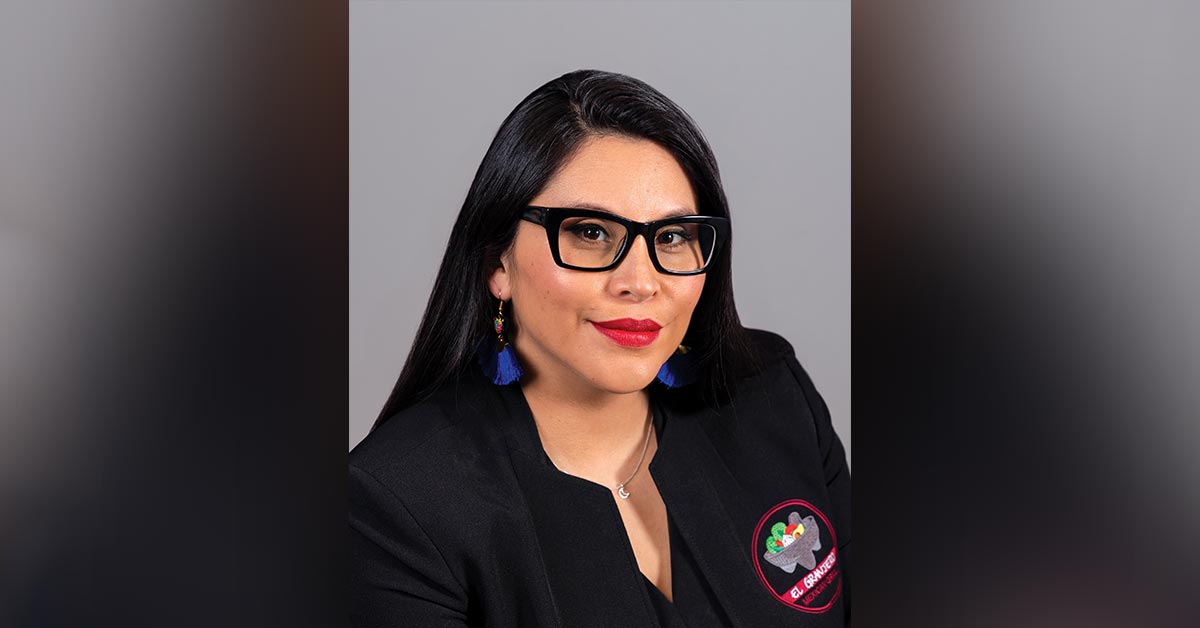Ashima Saigal, founder of Database Sherpa, works in a career field where women only account for about twenty percent of the work force, according to the National Science Foundation. Saigal's choice to work in this field has compelled her to be a trailblazer, although that role was not necessarily what she signed up for in the beginning.
Graduating from Michigan State University in 1991 with a degree in computer science, Saigal found that the Grand Rapids area had not yet moved from Cobol programming, which left PC development job prospects scarce. She relocated to Indiana to take a position as a programmer/consultant in a newly created department, but faced discrimination as the only women in that particular role. Wearing a pant suit instead of a skirt led to criticism and reprimand, even though she needed to be able to get around computer units, connect cables, and complete other physical tasks. The other women were working at desks, and a skirt didn't hinder their ability to do their work as it did for Saigal. (They had to develop an "Ashima Rule" regarding dress, she recalls.) Discovering that a man she trained was earning $10,000 more a year (rationalized because he had a family) was another difficult pill to swallow. Saigal pursued a transfer to the company's branch in Grand Rapids to be closer to her future husband, and in hope of finding a more reasonable work environment; because of her "troublemaker" status, she wasn't able to secure a transfer. Without a job, Saigal made the move anyway.
Securing a job in Lansing (and commuting from Grand Rapids), Saigal found that some of the same problems she experienced at her job in Indiana applied there. After her marriage, "When are you going to get pregnant?" was a common question. Concern that if she was given too much responsibility, the company would have to replace her when she began a family created a tense work situation. (That no one would have asked a male employee tthat question didn't seem to register with management.) Saigal hoped to find support when speaking to a female human resources representative about the untenable situation, but instead was told, "That's just the way it is in the corporate world." Not willing to accept this type of work environment as "normal," Saigal founded her first company, Hopper Business Solutions, at age twenty-seven.
At a time when the Internet was a brand-new entity, Saigal established herself as a trainer, teaching workers how this new tool could work for them. Presenting to large groups was intimidating, but Saigal embraced the challenge. "The only way to succeed is to take risks—your fear will hold you back." The Internet's evolution created an ongoing need for training, and Saigal honed in on small businesses and nonprofits. But she missed programming—writing code. After eight years, Saigal decided to close her business and return to programming, taking a position with a small software development company as a senior developer, and then with Steelcase as senior application engineer.
Saigal's "nonprofit bent," as she describes it, eventually caused her to leave Steelcase to take a position as director of services with NPower Michigan, a program funded fifty percent by Microsoft and fifty percent by local foundations, with the aim of providing tech services to nonprofits. While Saigal was very happy at Steelcase, NPower convinced her they needed someone with her technical and entrepreneurial background. Eventually she agreed to take the position, where she stayed for two years before leaving to pursue her master's degree in Computer and Information Systems at Grand Valley State University.
While pursuing her advanced degree, Saigal worked with the Dorothy A. Johnson Center of Philanthropy and Nonprofit Leadership, and developed her master's thesis focused on nonprofits and technology. In the process of researching her thesis, she found that data often confounded nonprofit organizations. She developed a plan to work with local nonprofits and guide them through the process of developing their own databases. First she worked one-on-one with nonprofits, and then in a classroom environment, experimenting with various approaches and honing the process.
Saigal's newest business, Database Sherpa, is a culmination of her experimentation. Conducted primarily in a virtual environment with the ultimate goal of having organizations achieve peace with their data, Saigal embeds mindfulness and yogic principals in her work. Adopting the "beginner's mind," she addresses the stress and confusion one may feel when learning something new—whether a database or yoga pose—and maintains a mindset accepting that even though she "knows" databases, there are entirely new elements of perception that her clients may be able to share, or that she may notice on her own, if her mind is open. She doesn't give answers to every question, but helps individuals figure it out themselves. With Salesforce.com as the platform and independence as a value, she helps her clients to learn to resolve their own problems. "Success is training my clients to need me less."
Saigal is also committed to helping other women achieve. She recalls that she could have used a mentor during her struggles early in her career. She also recalls the positive impact she felt from women who led training sessions for female businesses owners that she participated in during the early stages of her first business. Saigal is involved in mentoring women who wish to become programmers through Girlforce in the Salesforce Foundation's Power of Us HUB, and has also been an instructor in Inforum's ACTiVATE class, which guides women through the early stages of idea validation and technology commercialization.
Focusing on one thing has been a key piece of learning from Saigal's entrepreneurial experience, as is keeping a "beginner's mind" to continue the learning process. "I see a problem, I fill a gap, and when the problem is gone, I move on to the next problem."
Written by Jennifer Reynolds, staff writer for West Michigan Woman.
Photo courtesy of Anna Ellerbroek.




